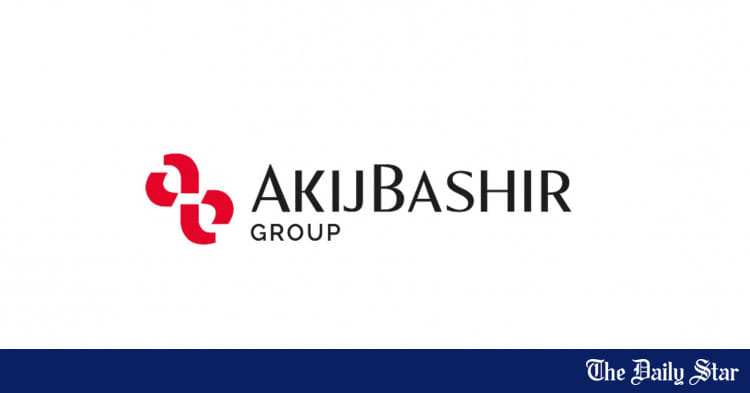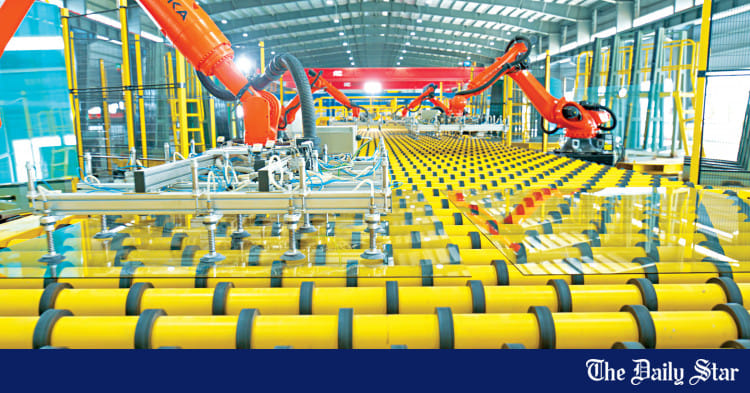- Copy to clipboard
- Moderator
- #1
- Joined
- Jan 24, 2024
- Messages
- 3,313
- Solutions
- 1
- Reaction score
- 1,718
- Points
- 209
Source
:
https://www.tbsnews.net/economy/industry/php-plans-invest-tk500cr-three-new-products-743334
PHP Glass plans to invest Tk500cr in three new products
PHP identifies 10,000 furniture producers across the country

Infograph: TBS
PHP Float Glass Industries Limited, one of the leading glass manufacturers in the country, is set to invest Tk500 crore to introduce three new products – bending glass, fibreglass net, and aluminium ladders.
As part of such expansion, PHP Float Glass Industries is establishing three new plants at its factory area in Barabkunda, Chattogram.
Before deciding on this new investment, the company conducted market research and identified 10,000 furniture producers across the country with demand for the three products.
For bending glass, used in furniture such as tea tables, PHP plans to establish a plant with a monthly capacity of producing 30,000-50,000 square feet, targeting small furniture producers.
The move aims to reduce import dependence and reduce cost by 6-7 times. Despite a capacity exceeding the current demand of 5,000-10,000 sq-ft, PHP will produce according to demand and adapt production as needed.
Mohammed Amir Hossain, managing director of PHP Float Glass Industries, told The Business Standard that the company is gearing up for commercial production of bending glass within the next four-six months. The PHP authorities have already initiated the process by opening a letter of credit to import the necessary machinery.
For fibreglass net production, the company plans to set up a new unit with a 100-tonne capacity, with plans to expand based on future demand.
Amir Hossain said they will use Chinese technology for fibreglass nets. He emphasised the sustainability and cost-effectiveness of this product compared to traditional materials like MS (Mild Steel) or SS (Stainless Steel) nets, highlighting its resistance to rust and affordability.
The product will serve as a mosquito barrier net for windows and as mosquito nets.
Company officials noted that due to the increase in dengue fever cases this year, mosquito net prices have increased and they expect that domestic production will result in a product that is at least 10 times more affordable.
In addition, PHP Float Glass Industries will establish a production unit for aluminium ladders. Several local ladder manufacturers already source their raw materials from PHP.
Amir Hossain said PHP was already supplying aluminium to ladder manufacturers. Therefore, they see a strategic advantage in setting up a dedicated unit for the production of aluminium ladders, given the ready availability of raw materials.
"In 2005, introducing commercially produced glass was a challenge. We successfully created a glass market, and we anticipate a similar adoption of the new product as the country's economy continues to grow," he said.
Expansion of PHP Float Glass Industries
PHP Float Glass Industries was established in 2004 in Chattogram with an investment of around Tk1,500 crore on 24.27 acres of land. The company has the capacity to meet 40% of the country's demand for float glass.
In 2005, PHP exported its first glass from Bangladesh. In 2008, the company built a high-quality silver mirror plant with a single-shift capacity of 700,000 square metres of silver-coated mirror.
In 2010, PHP established an aluminium factory with a manufacturing capacity of 800 tonnes per month. PHP is the only company in Bangladesh that delivers glass and aluminium products under the same roof. The glass is produced through sputtering coating technology on fourth-generation industrial machinery.
In 2012, PHP installed a glass processing plant and began producing tempered glass.
In 2021, the company started producing 10 different varieties of reflecting glass, covering 50% of the overall market demand.
Prior to this, only two types of reflective glass – dark blue and dark green – were available in Bangladesh.
In 2021, PHP also introduced insulating glass or soundproof glass.
In February 2023, PHP introduced another product – a glass door with at least 51 stunning designs.
Daily glass consumption in Bangladesh is currently 800-1,000 tonnes, expected to increase to 2,000-2,500 tonnes in four to five years.
In 2019, PHP Float Glass Industries upgraded its production capacity for clear glass to 300 tonnes per day from 150 tonnes per day.
It also exports an average of 800 tonnes per month to India, Sri Lanka, Nepal, and the Philippines.
Furthermore, PHP has been operating a 500-ton production capacity aluminium factory with a product profile of at least 350 designs, while the country's monthly demand is 4,000-5,000 tonnes.
Mohammed Amir Hossain said, "Glass consumption is closely tied to economic development. As an optimist, PHP launched four new products post-Covid-19, believing in Bangladesh's progress. Together, we're dedicated to the growth of our nation."






